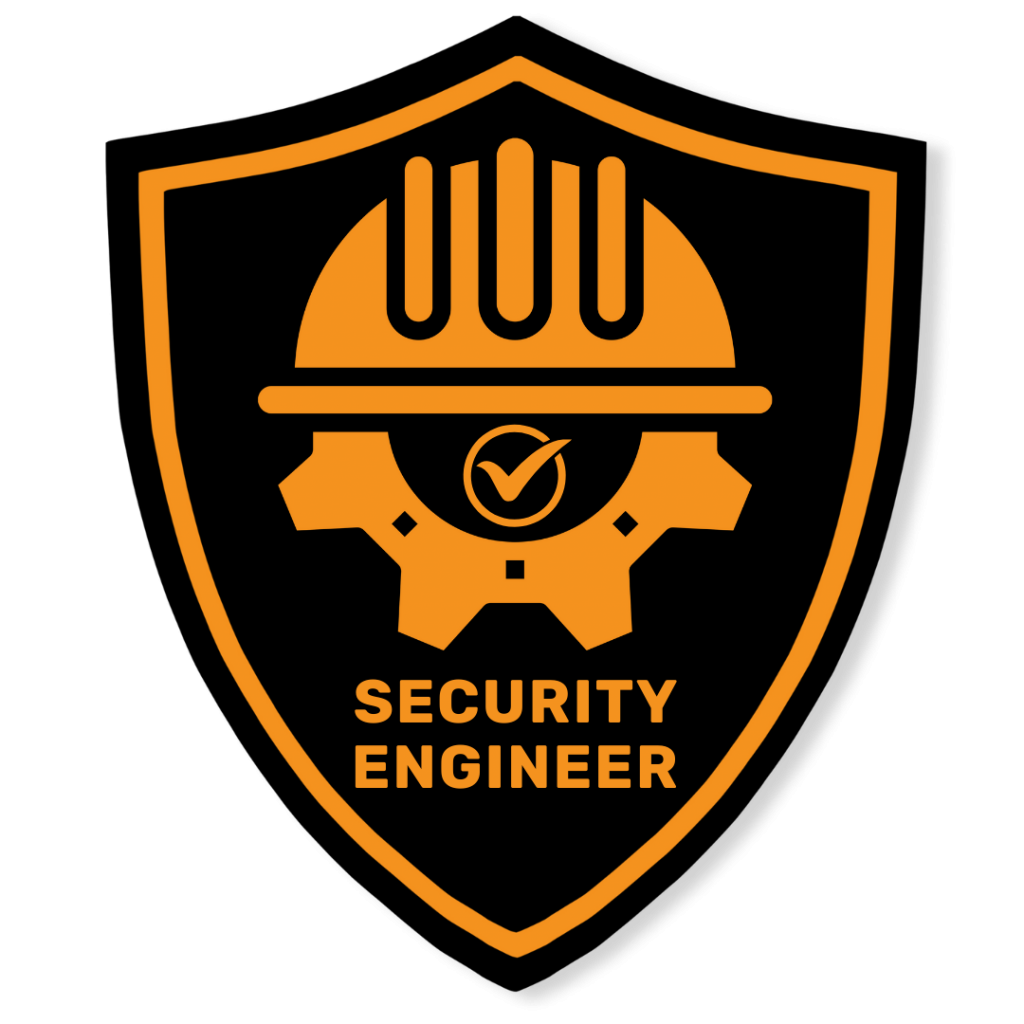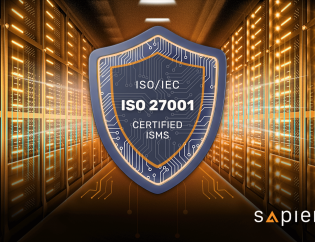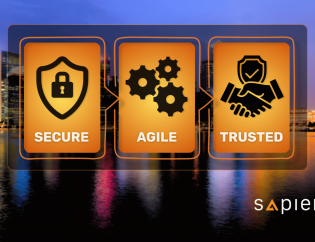Breaking into
Cybersecurity:
Your 2025 Guide to
Roles, Skills, Challenges,
and Expectations
Written by:
Principal Consultant
Sapience Consulting

As our digital world continues to expand, so do its vulnerabilities. Cyberattacks are no longer just the concern of governments or massive enterprises—they’re a daily threat to businesses, hospitals, schools, and even individuals. This growing demand for digital defense has made cybersecurity one of the most promising and in-demand career paths today.
Whether you’re a student, a mid-career professional, or someone simply intrigued by the field, transitioning into cybersecurity is more achievable than ever—provided you understand the landscape. This blog breaks down everything you need to know: the roles available, essential skills, possible challenges, and what expectations to have.

Why Cybersecurity?
Cybersecurity is about protecting systems, networks, and data from digital threats. It’s a field where curiosity, adaptability, and critical thinking are just as important as technical knowledge. With cybercrime damages projected to cost the world $10.5 trillion annually by 2025, organisations are investing heavily in their defense—making cybersecurity careers both impactful and rewarding.
Paths Into Cybersecurity
Contrary to popular belief, you don’t need a degree in computer science to break into cybersecurity. Many professionals come from backgrounds in law, finance, military, education, or even retail. What matters is a willingness to learn, gain relevant certifications, and develop a security mindset.
In fact, initiatives such as the cybersecurity skills pathway launched in 2024 are opening doors for career switchers, offering training roadmaps for newcomers.
Key Roles in Cybersecurity

1. Security Analyst (Entry to Mid-Level)
👉 Start here if you’re transitioning from IT support or helpdesk roles.Responsibilities:
- Monitor security systems for suspicious activity
- Analyse threats and vulnerabilities
- Respond to incidents and document breaches
Skills Needed:
- Networking basics (TCP/IP, DNS)
- SIEM tools (e.g., Splunk)
- Threat detection and response
- Scripting (Python, PowerShell)
- Attention to detail and analytical thinking

2. Penetration Tester (Ethical Hacker)
👉 Great for problem-solvers who love to “think like a hacker.”Responsibilities:
- Simulate attacks to find vulnerabilities
- Write detailed reports on findings
- Collaborate with developers to fix flaws
Skills Needed:
- Ethical hacking techniques
- Operating system knowledge (Linux, Windows)
- Programming (Python, Bash, JavaScript)
- Tools like Metasploit, Burp Suite, Nmap
- Certifications like CEH or OSCP

3. Security Engineer
👉 Ideal for those coming from sysadmin or DevOps backgrounds.
Responsibilities:
- Build and maintain security infrastructure
- Design secure systems and networks
- Implement firewalls, VPNs, and IDS/IPS
Skills Needed:
- Network architecture
- Secure coding practices
- Cloud security (AWS, Azure)
- Infrastructure as Code (Terraform, Ansible)
- Strong scripting or programming background

4. Incident Responder/SOC Analyst

Responsibilities:
- Investigate security breaches
- Contain and remediate attacks
- Perform forensic analysis
Skills Needed:
- Security Information and Event Management (SIEM)
- Malware analysis
- Communication and teamwork
- Certifications like CompTIA CySA+, GCIH

5. Governance, Risk and Compliance (GRC)

Responsibilities:
- Ensure security policies meet legal and business requirements
- Conduct risk assessments and audits
- Manage data privacy and compliance frameworks
Skills Needed:
- Regulatory knowledge (GDPR, HIPAA)
- Risk management frameworks (NIST, ISO 27001)
- Policy writing and auditing
- Communication and business acumen
Core Skills Across All Roles
Regardless of the path you take, here are some universal cybersecurity skills you’ll want to develop:
- Cybersecurity Fundamentals – Know how data, systems, and networks work.
- Problem Solving – Expect the unexpected; attackers are creative.
- Communication – Explaining technical issues to non-technical people is crucial.
- Ethics and Integrity – You’ll handle sensitive data and access.
- Continuous Learning – Threats evolve constantly, and so should you.
Certifications to Kickstart Your Career
-
CompTIA Security+ – Best beginner-friendly credential
-
Certified Ethical Hacker (CEH) – Focused on penetration testing
-
Cisco CyberOps Associate – For SOC/IR-focused careers
-
GIAC Security Essentials (GSEC) – Comprehensive security knowledge
-
(ISC)² Certified Information Systems Security Professional (CISSP) – For advanced professionals
Challenges You Might Face
Transitioning into cybersecurity is rewarding—but not always easy. Here are a few common hurdles:
-
Steep Learning Curve : Cybersecurity is broad and technical. You’ll need to commit time to study.
-
Experience Gap : Employers often want hands-on experience. Try labs, simulations, or volunteering.
-
Imposter Syndrome : The field moves fast. It’s easy to feel behind—just remember, everyone starts somewhere.
-
Tool Overload : There’s a new tool every week. Focus on understanding principles, not just tools.
Setting the Right Expectations
 Don’t Expect:
Don’t Expect:
Instant six-figure salaries (those come with time and experience)
Easy certifications that magically land you a job
A “one-size-fits-all” roadmap
 Do Expect:
Do Expect:
-
A learning journey that evolves with your career
-
Opportunities to specialise and grow rapidly
-
A supportive global community of professionals
-
The chance to make a real impact on society
Funding Support
For individuals in Singapore aspiring to transition into the cybersecurity field, cost is often one of the biggest barriers to upskilling. Fortunately, the Singapore government offers a robust suite of funding schemes and subsidies designed to ease the financial burden of training and education, especially for mid-career professionals and those pursuing in-demand tech roles. Here’s how you can benefit from these initiatives
Funding Scheme :
SkillsFuture Credit
Ideal For :
General Public (25+)
Benefit :
S$500–S$1000 for approved courses
Funding Scheme :
Career Conversion Program
Ideal For :
Mid-career switchers
Benefit :
Up to 90% subsidy +
salary support
Funding Scheme :
TeSA
Ideal For :
Tech job seekers
Benefit :
Subsidies for structured industry programs
Funding Scheme :
UTAP
Ideal For :
NTUC members
Benefit :
50% course fee support (capped at $250/year)
Funding Scheme :
MOE Subsidies
Ideal For :
Part-time diploma/degree learners
Benefit :
Up to 90% off tuition fees
Funding Scheme
Ideal For
Benefit
SkillsFuture Credit
General public (25+)
S$500–S$1000 for approved courses
Career Conversion Programme
Mid-career switchers
Up to 90% subsidy + salary support
TeSA
Tech job seekers
Subsidies for structured industry programs
UTAP
NTUC members
50% course fee support (capped at $250/year)
MOE Subsidies
Part-time diploma/degree learners
Up to 90% off tuition fees
Singapore’s government has made a strong commitment to building a future-ready workforce. If you’re looking to pivot into cybersecurity, these funding schemes significantly reduce the financial risks of reskilling. More importantly, they’re aligned with industry-recognised training pathways and are tailored to help new entrants gain not just theoretical knowledge but practical, employable skills.
Whether you’re a fresh graduate, a mid-career professional, or simply someone passionate about cyber defense, now is the time to leverage Singapore’s ecosystem of support and make the leap into this high-demand field.
Final Thoughts: Your First Steps
If you’re serious about breaking into cybersecurity, here’s a simple plan:
- Start learning the basics – Free resources, YouTube, or courses.
Choose a role that fits your strengths and interests.
Get certified – Start with Security+ or a beginner-level credential.
Practice – Use platforms like TryHackMe, Hack The Box, or Blue Team Labs.
Network – Join forums, attend webinars, and connect on LinkedIn.
Cybersecurity isn’t just a job—it’s a mission. And with the right mix of curiosity, dedication, and training, you can become part of the next wave of digital defenders.
As a trusted leader in professional development, Sapience empowers you to invest in your future.
Don’t wait – Explore our available funding and leverage our expertise to upskill without financial strain.












